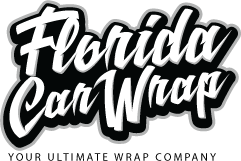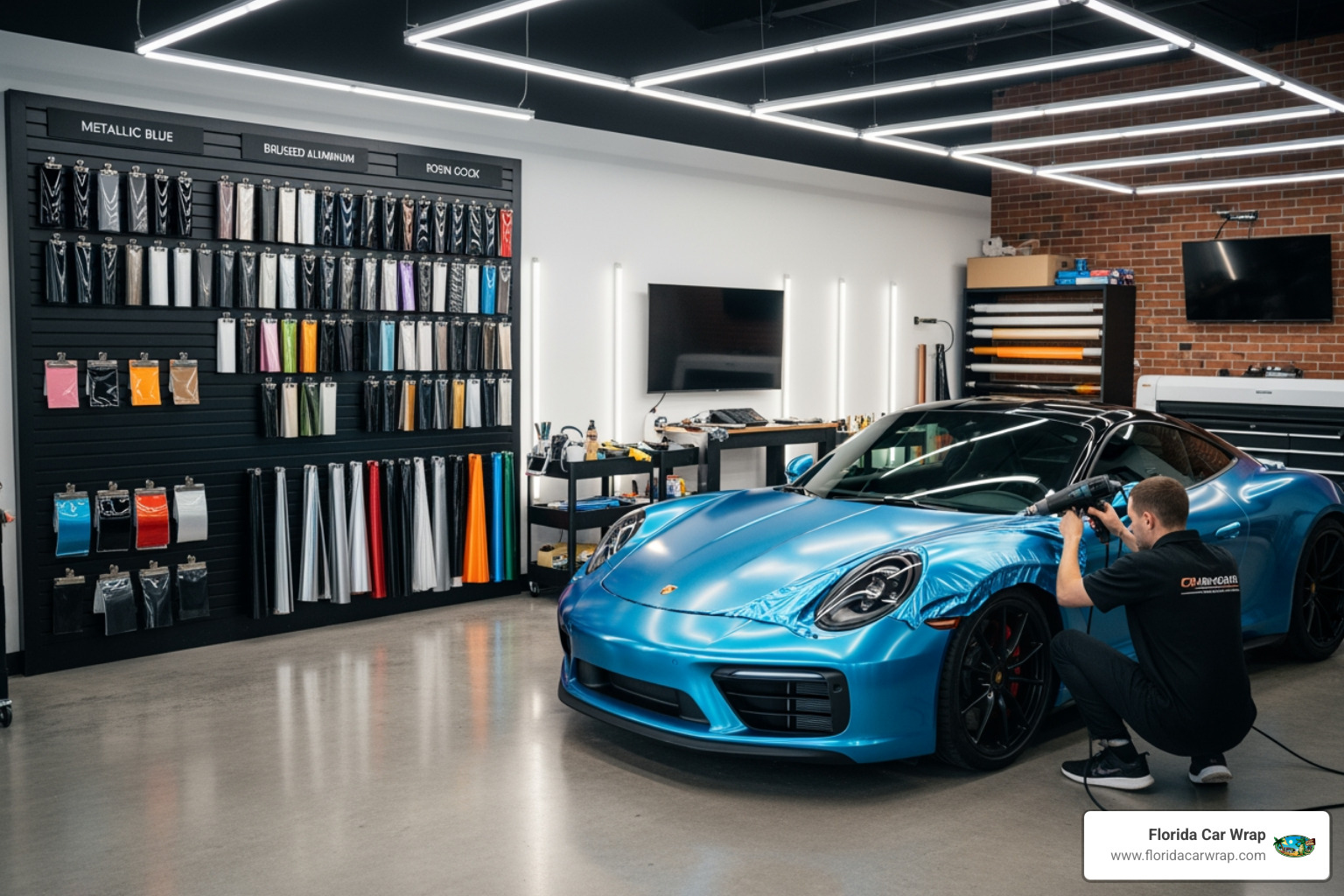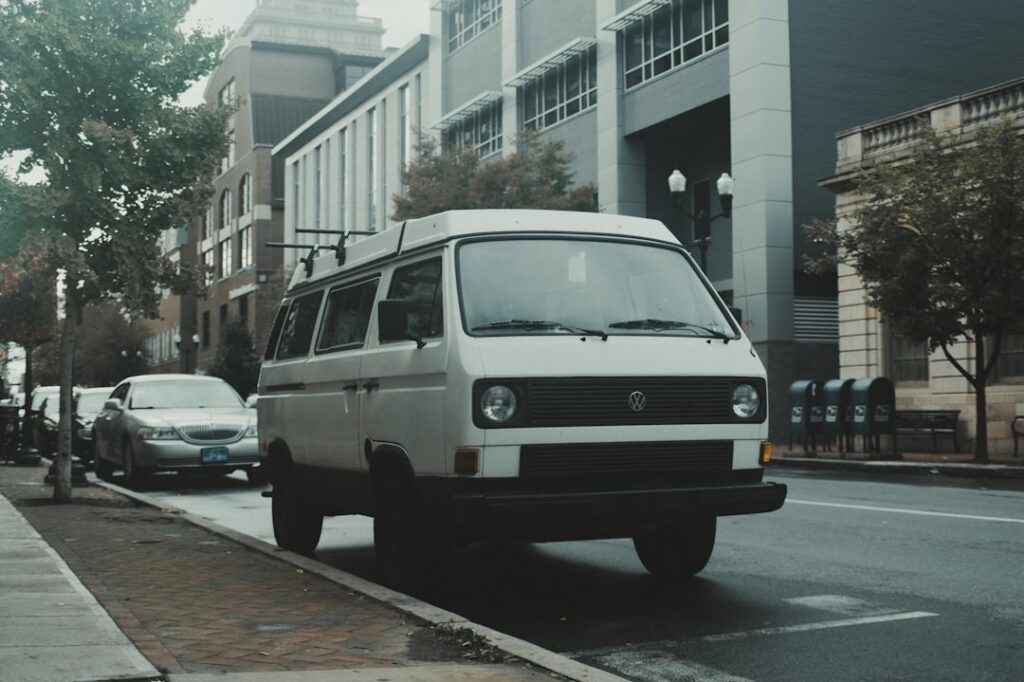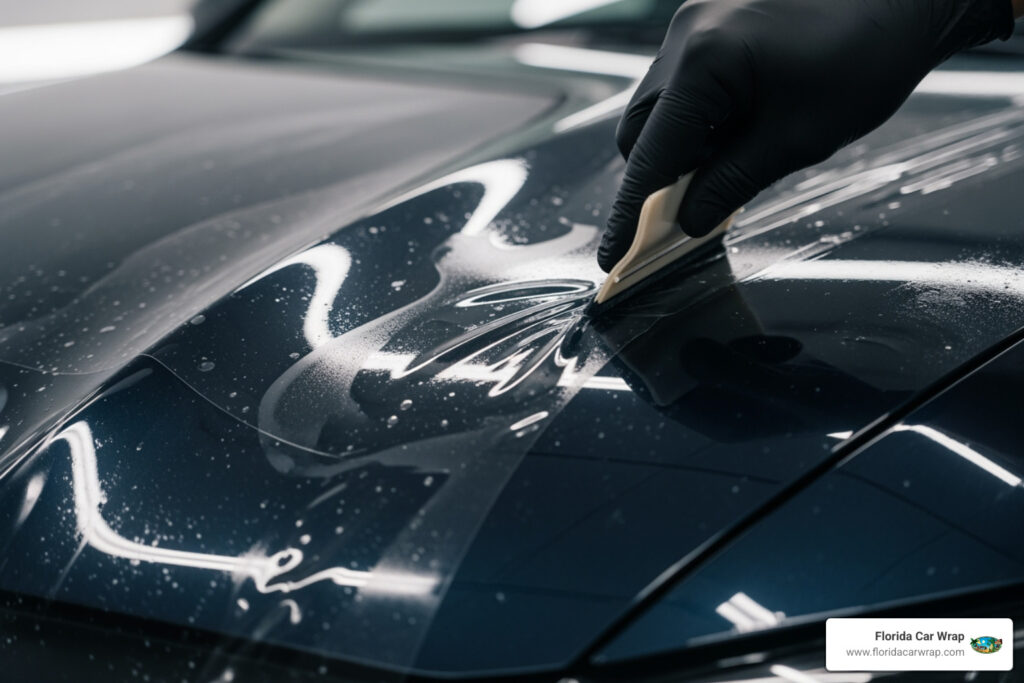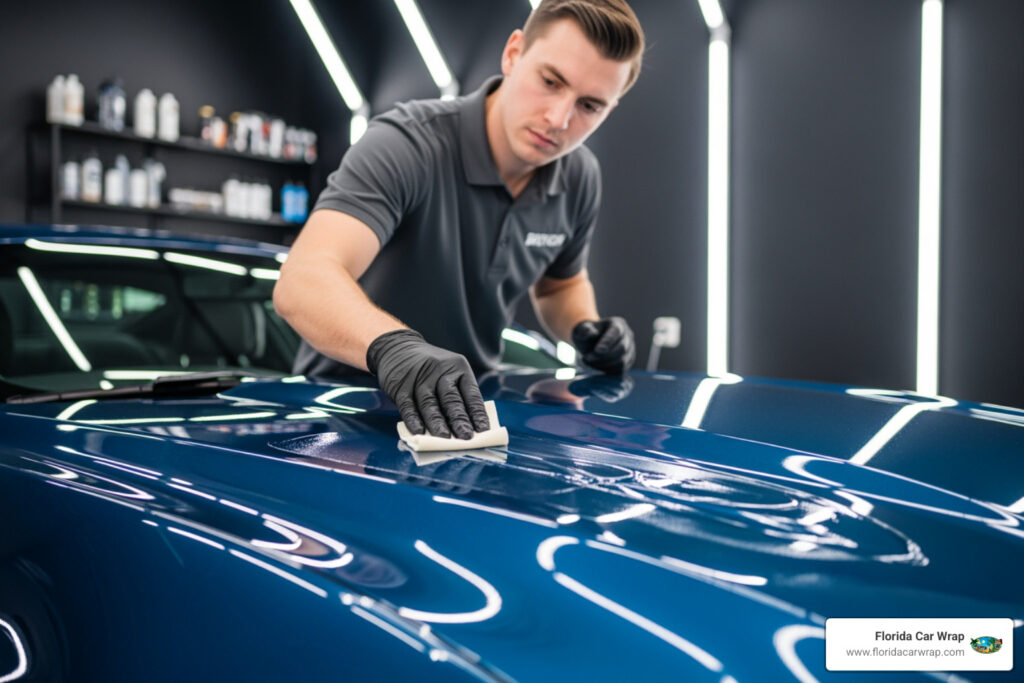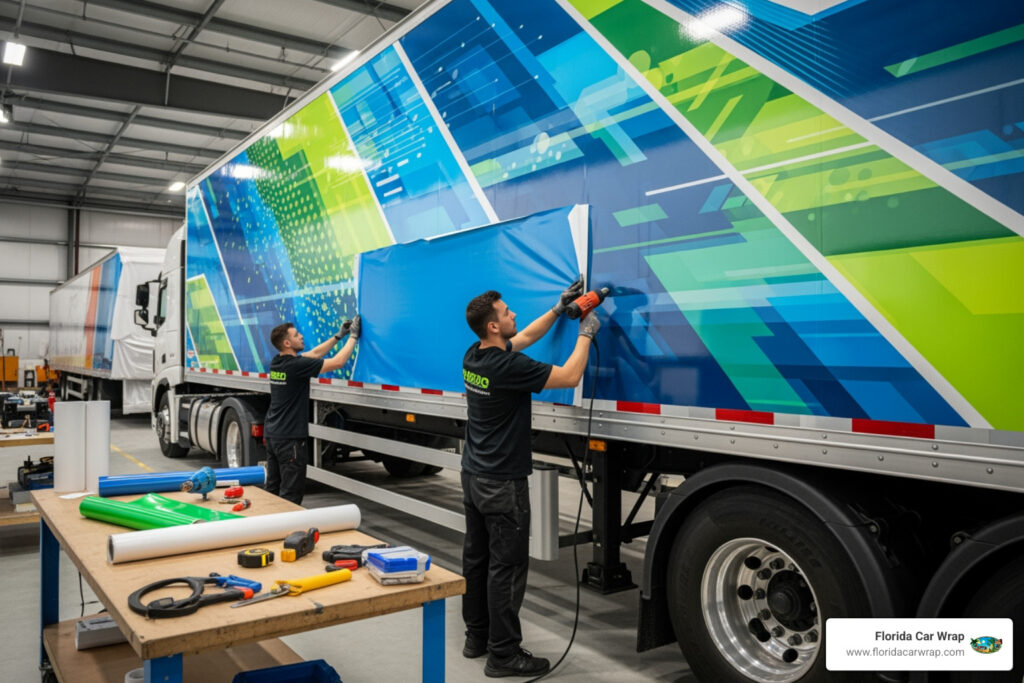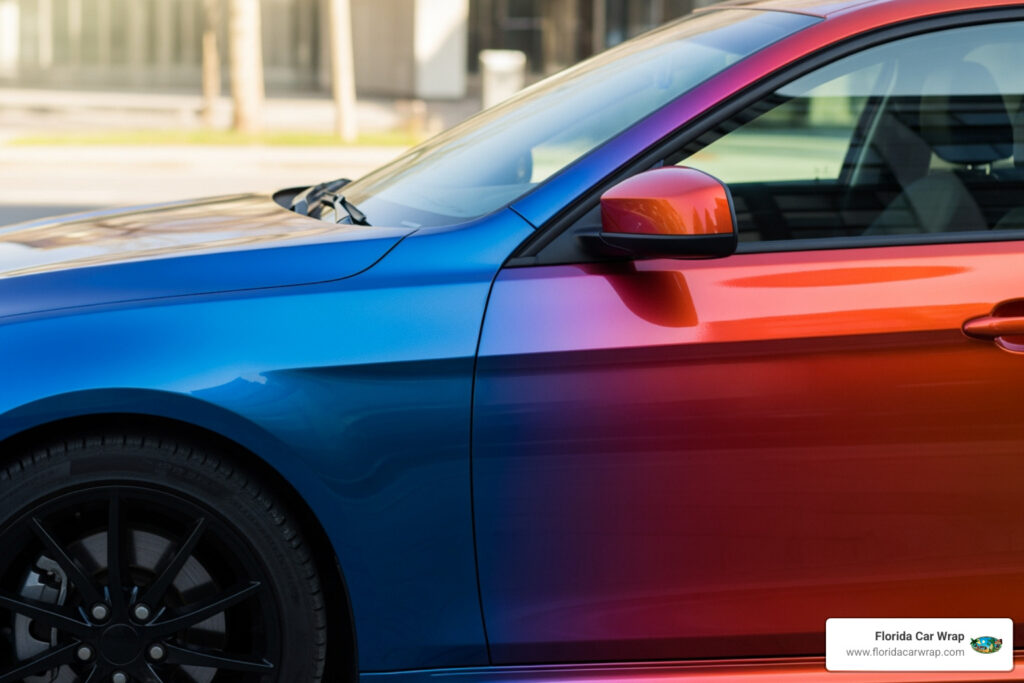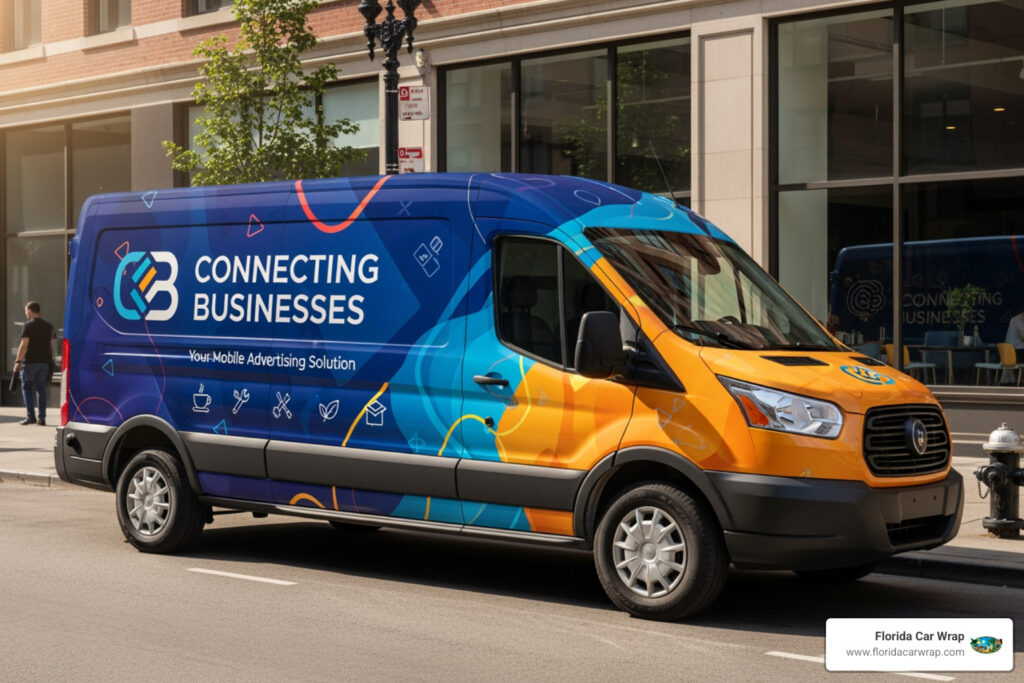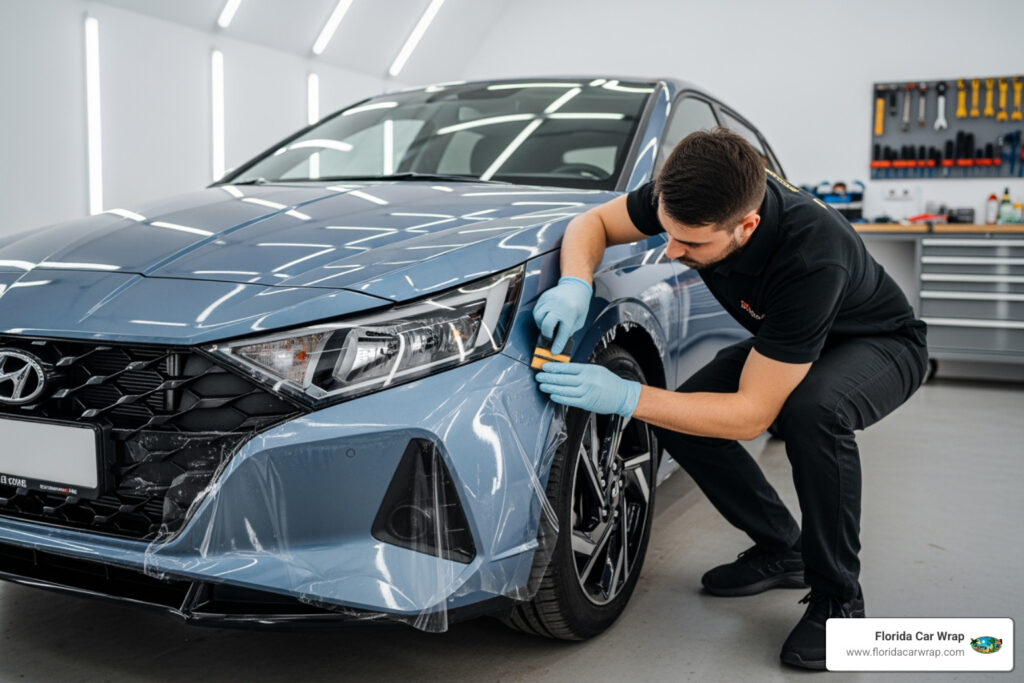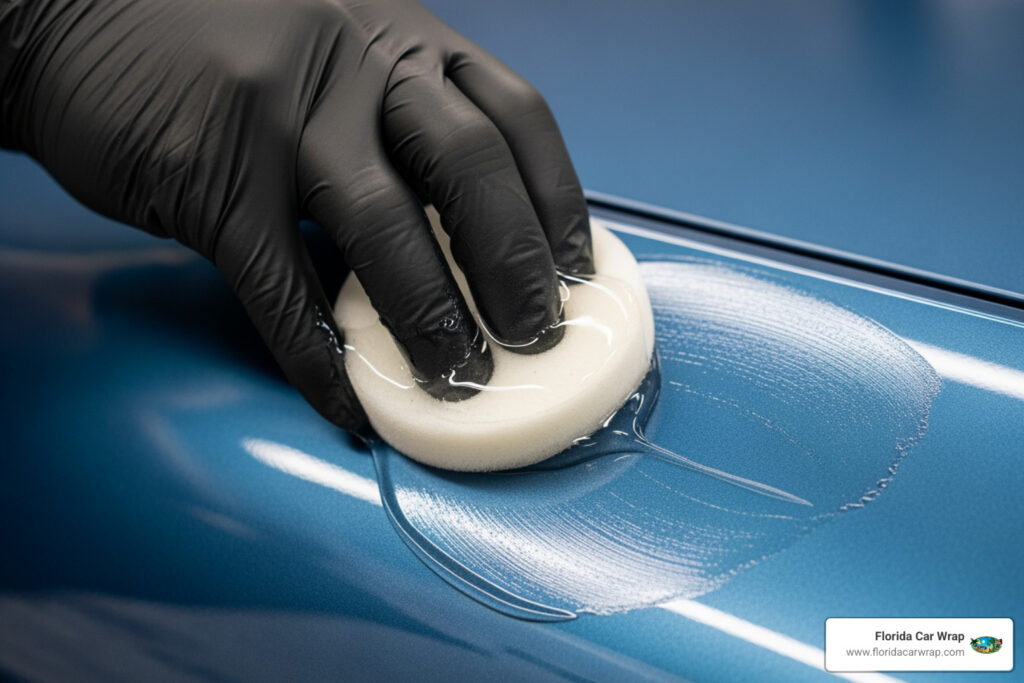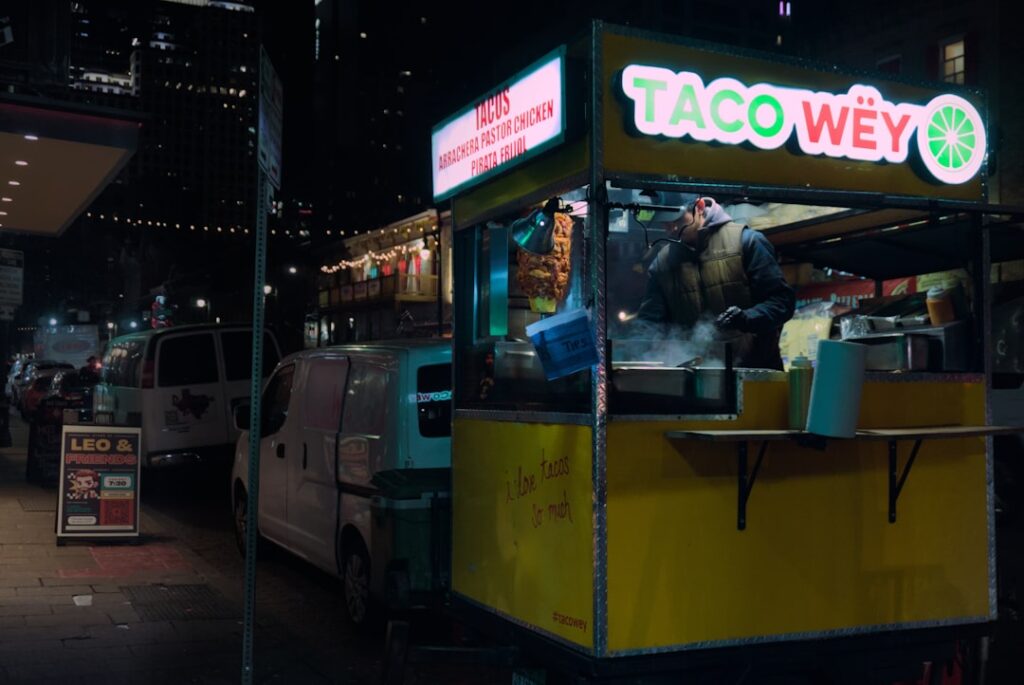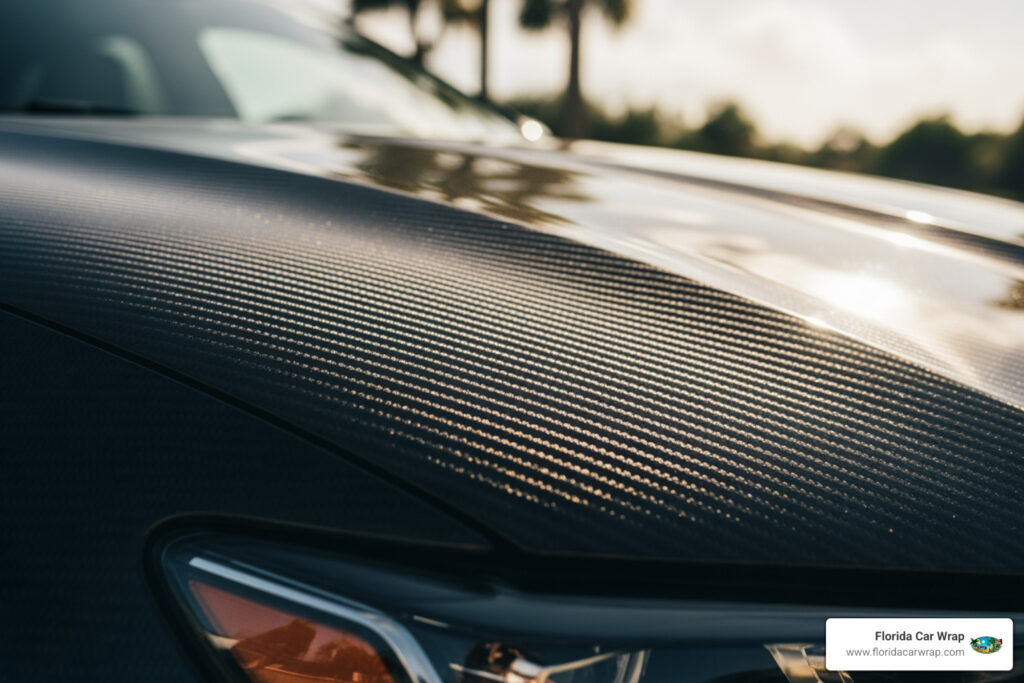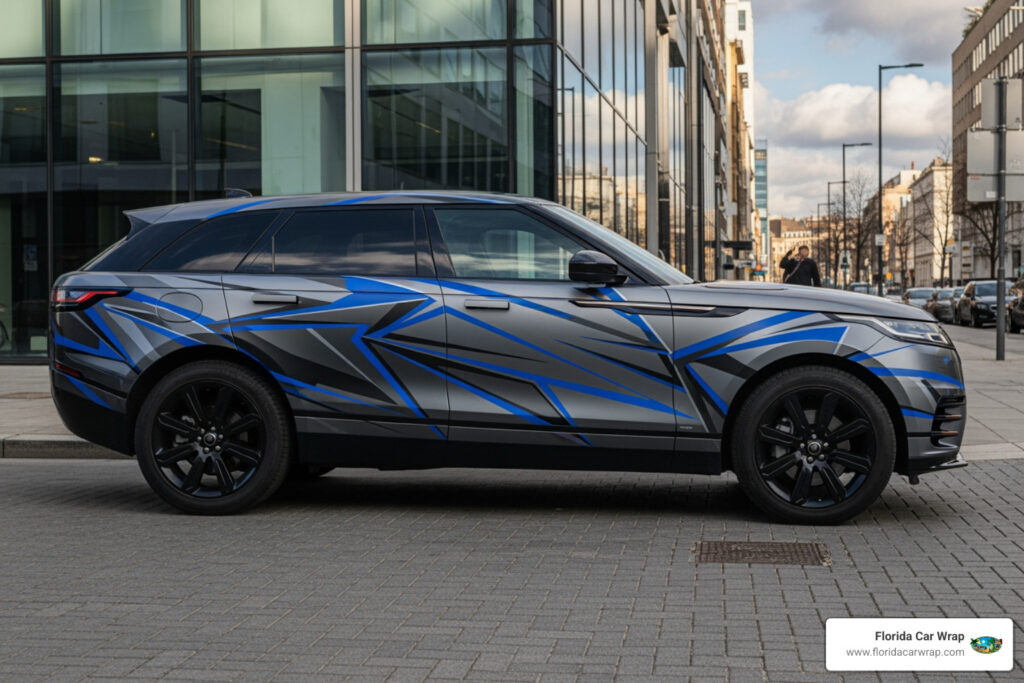Why Choosing the Right Vinyl Wrap Store Matters
Looking for a vinyl wrap store near me? The decision you make will determine the final look, durability, and safety of your vehicle’s finish. Here’s what you need to know to get started and how to find a true professional:
How to Find a Quality Vinyl Wrap Store:
- Search Online and Do Your Homework – Start with searches like “best car wrap in South Florida” or “vinyl wrap store near me.” But don’t stop at the first result. Dive into their websites. Look for a professional, easy-to-steer site with clear information about their services, process, and materials. Pay close attention to their Google My Business profile, reading through recent customer reviews to gauge satisfaction.
- Check Certifications and Training – The vinyl wrap industry has professional standards. Seek out installers who are certified by the material manufacturers. Being certified by a top brand like 3M means the installer has undergone rigorous training and testing, proving their ability to apply the material to the manufacturer’s exact specifications. This is a powerful indicator of quality and professionalism.
- Review Their Work Carefully – A picture is worth a thousand words. A reputable shop will have an extensive gallery of completed projects on their website and social media. Don’t just glance at the photos. Zoom in. Look at the details: Are the edges clean and tucked away? Are complex curves and bumpers covered smoothly without seams or stretch marks? Is the finish consistent across the entire vehicle? A strong portfolio showcases precision and experience.
- Ask About Materials – Not all vinyl is created equal. A professional shop will exclusively use high-quality, premium cast vinyl from trusted brands like 3M, Avery Dennison, KPMF, and Oracal. Ask them what type of vinyl they recommend for your project and why. They should be able to explain the differences in durability, finish, and cost. If a shop is using cheap, unbranded, or calendared vinyl for full vehicle wraps, it’s a major red flag.
- Get Multiple Detailed Quotes – Price is a factor, but it shouldn’t be the only one. When you request a quote, it should be detailed. It should specify the exact material being used, the scope of the work (e.g., door jambs, disassembly), the estimated timeline, and the warranty offered on both the material and the labor. A suspiciously low quote often points to cut corners, inexperienced labor, or inferior materials.
Beyond online research, visit promising shops in person. A clean, organized, and climate-controlled workspace is a sign of professionalism. Ask to see in-progress vehicles so you can observe panel alignment, safe disassembly and reassembly, and how edges and recesses are handled. Request physical swatches of the exact films being quoted and ask how the shop ensures color consistency across panels.
Clarify what happens after installation, too. Reputable wrap stores offer a follow-up inspection within 7–14 days to recheck edges, address any small post-install bubbles, and review care instructions. Ask about their process for surface preparation, panel removal when necessary, and post-heating techniques—these steps are critical to long-term performance, especially in South Florida’s heat and humidity.
Vehicle wraps have exploded in popularity, and for good reason. The global automotive wrap market is projected to reach $20.1 billion by 2030, growing at an impressive 8.5% annually. This growth isn’t just a trend; it reflects what savvy car owners have found: vinyl wraps offer incredible customization, protect your original paint, and cost significantly less than a high-quality traditional paint job.
A vinyl wrap is a large sheet of specialty vinyl film that’s carefully applied to your vehicle’s exterior. It’s a high-tech “second skin” that completely transforms your car’s appearance while preserving the factory finish underneath. Whether you’re looking to change your ride’s color, add custom graphics for your business, or protect an exotic car’s paint, wraps deliver results that paint simply can’t match in terms of flexibility and reversibility.
But here’s the catch: the quality of your wrap depends entirely on who installs it. A skilled, certified installer using premium materials will give you a flawless, paint-like finish that lasts for years. A rushed job with cheap vinyl? You’ll be dealing with bubbles, peeling edges, lifting corners, and deep regret within months. The difference is craftsmanship. That’s why finding the right local vinyl wrap shop is crucial. You need experienced professionals who understand the science of proper surface preparation, have steady hands for complex curves, and stand behind their work with a solid warranty.
South Florida’s environment makes these details even more important. UV exposure, salt air, sudden rain, and high humidity mean your wrap must be expertly installed with premium cast films and meticulous edge sealing to prevent lifting. Ask shops how they prep surfaces (decontamination, clay, and solvent wipe-downs), how they protect sensitive areas during disassembly, and what specific care routine they recommend for our climate.
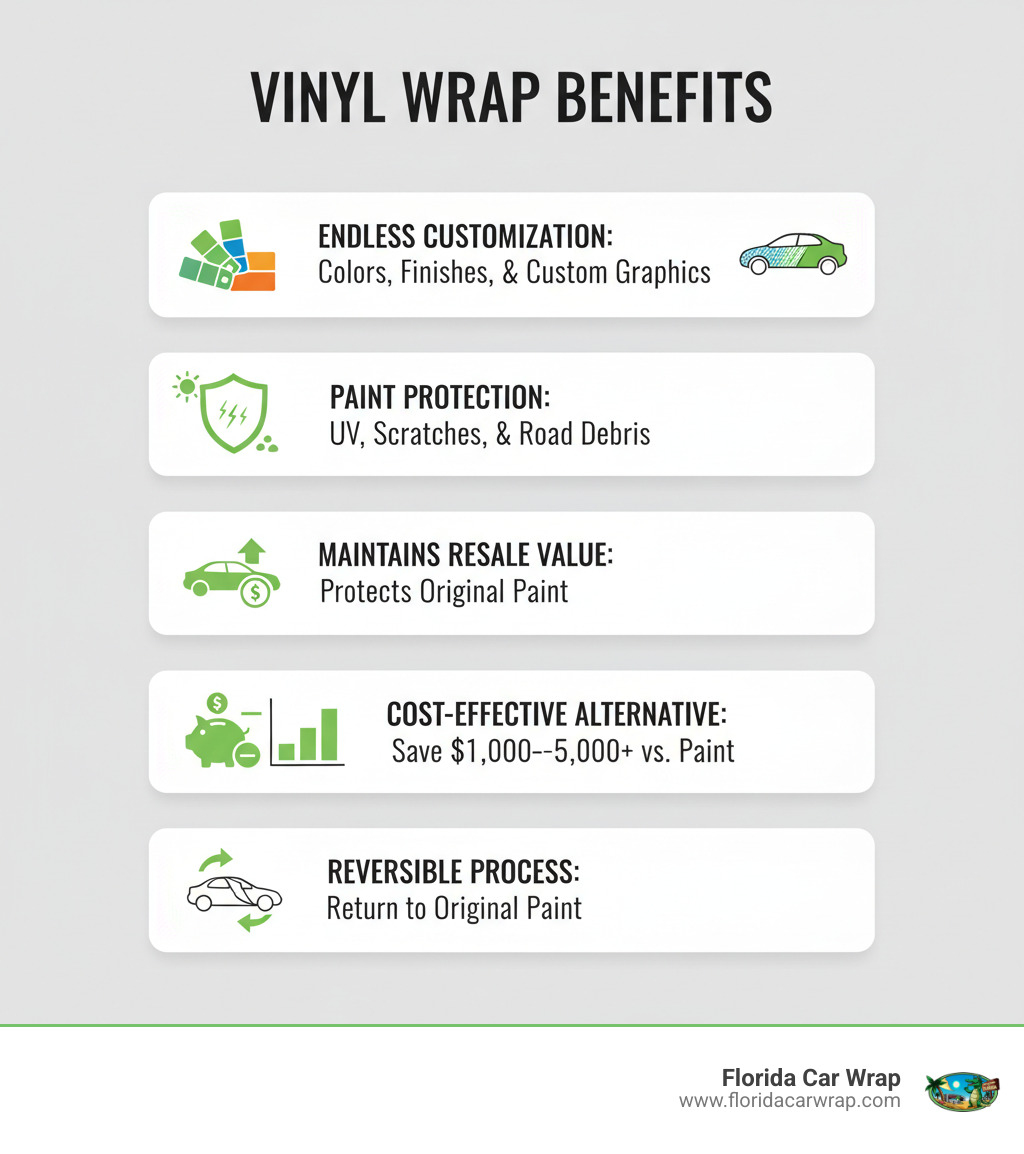
Easy vinyl wrap store near me glossary:
What is a Vehicle Vinyl Wrap and How Does It Compare to Paint?
Think of a vinyl wrap as a high-tech second skin for your vehicle. It’s a durable, multi-layered adhesive film that is expertly stretched and conformed to every curve and contour of your car, covering the existing paint with a flawless new finish. This isn’t a simple sticker; it’s an advanced material engineered for automotive application. Whether you drive a car, truck, van, or even a boat, a wrap can completely transform its appearance while protecting the valuable asset underneath.
The true beauty of vinyl wraps lies in their unparalleled versatility. Want to change your ride from basic black to a stunning electric blue? Done. Need to add custom-printed graphics and logos for your business? Easy. Dreaming of a stealthy matte finish, a luxurious satin texture, or an aggressive carbon fiber look? All are possible with vinyl. And here’s the kicker: you can change your mind later without any permanent consequences.
When most people consider a major aesthetic change for their vehicle, they face a common dilemma: should I wrap it or paint it? While both options can dramatically alter your vehicle’s appearance, they’re fundamentally different in process, cost, customization, and long-term implications.
The numbers tell a compelling story. A professional vinyl wrap from a reputable shop typically costs between $2,000 and $5,000, depending on your vehicle’s size, the complexity of its body lines, and the chosen material. A quality paint job that rivals a factory finish? You’re looking at a starting point of $3,000 to $10,000 or more—and that price skyrockets if you want custom colors, special finishes, or multi-tone effects.
But cost is just the beginning of the story. Let’s break down how these two options really compare:
| Feature | Vinyl Wrap | New Paint Job |
|---|---|---|
| Cost | $2,000-$5,000 | $3,000-$10,000+ |
| Time | 2-5 days | 1-3 weeks (including prep, application, and cure time) |
| Customization | Virtually unlimited colors, finishes (matte, satin, chrome, carbon fiber), and custom-printed graphics. Can combine multiple colors and textures easily. | Limited to available paint colors and finishes. Custom graphics and multi-tone designs require significantly more labor, skill, and cost. |
| Durability | 3-10 years with proper care. Actively protects the original paint from UV rays, scratches, and road debris. | Permanent. The quality and longevity depend heavily on the prep work, application environment, and materials used. Susceptible to chips and scratches. |
| Reversibility | Completely removable by a professional without damage to the underlying factory paint. | Permanent. The only way to change the color is to repaint the entire vehicle again, a costly and time-consuming process. |
Here’s what really sets wraps apart: they’re completely reversible, acting as a protective shield for your original paint. When you’re ready for a change, or when it’s time to sell your vehicle, a professional can remove the wrap, revealing the pristine factory paint underneath. In fact, the paint beneath a wrap is often in better condition than when it was applied, having been shielded from fading UV rays, minor scratches, bird droppings, and other environmental hazards.
The removal process is a science in itself and is designed to be damage-free when performed by experienced professionals. They use specialized heat guns and techniques to carefully soften the adhesive, allowing the film to release cleanly without leaving residue or pulling up the clear coat. It’s crucial that the vehicle has original, factory-applied paint (OEM paint) for this to be guaranteed. Low-quality aftermarket paint jobs may not have a strong enough bond and could potentially be damaged during removal.
What’s inside the film matters, too. Most premium wraps are cast polyvinyl chloride (PVC) engineered with air-release channels and pressure-sensitive adhesives for conformability and clean removability. Proper surface preparation, controlled installation temperatures, and post-heating to manufacturer specifications are the difference between a long-lasting wrap and one that fails prematurely—especially in hot, sunny climates like South Florida.
For context, traditional automotive paint changes require sanding, primers, basecoat/clearcoat systems, and curing time. Wraps avoid those permanent steps while remaining fully reversible. And for commercial vehicles, wraps can double as mobile billboards—see the background and impact of wrap advertising for how businesses leverage graphics for daily impressions.
For anyone searching for a “vinyl wrap store near me,” understanding these fundamental differences is crucial. A wrap isn’t just a cheaper alternative to paint—it’s often the smarter, more flexible, and more creative choice, offering a level of protection and personalization that paint simply can’t match.

